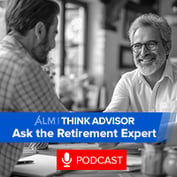WASHINGTON, D.C. – That old Economics 101 lesson about supply and demand paid a visit Monday to the 2014 Society of Professional Asset-Managers and Record Keepers meeting – and the news was good for retirement advisors.
“I’ve never seen a gap like this,” Ron Bush, the founder of Retirement Research Inc., told the audience. “It’s really remarkable.”
The issue is a trend that RRI (and others) have been pointing out for a while: the growing need for highly knowledgeable advisors and expanding list of services that plan sponsors want those advisors to deliver in the small and mid-sized segments.
With more than 40,000 401(k) plans (out of a total of 528,300) projected to be in the market this year alone, there’s a good deal of opportunity available to advisors to try to stand out from the competition.
Not that it’ll be easy. The shift from saving to drawing down will only accelerate in coming decades as boomers retire, making it that much harder to retain and manage assets under management.
Retirement crisis aside, Bush pointed out that the U.S. is still far and away the leader in retirement assets, with about 62 percent of the $33.5 trillion in such assets worldwide.
See also: Top 1 percent of plans hold more than 71% of 401(k) assets








 June 17, 2014 at 02:03 PM
June 17, 2014 at 02:03 PM









